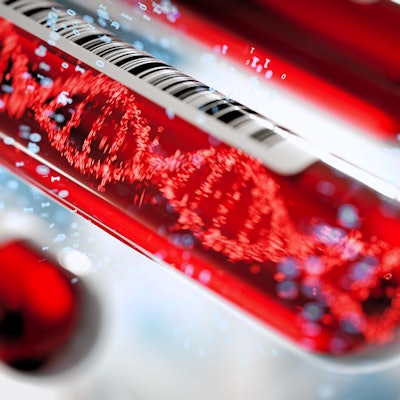
Personal Genome Diagnostics reported positive study results for a 58-gene panel liquid biopsy test for assessing microsatellite instability and tumor mutational burden in an article published online September 10 in Clinical Cancer Research.
Microsatellite instability and tumor mutational burden are biomarkers associated with response to immunotherapy checkpoint drugs. In a proof-of-concept study of 61 patients with advanced cancer and 163 healthy participants, the cell-free DNA (cfDNA) test demonstrated results that are worthy of further investigation, reported senior author Mark Sausen, PhD, a former executive at Personal Genome Diagnostics, and colleagues in Clinical Cancer Research, a journal of the American Association for Cancer Research.
The study was funded by grants from the U.S. National Institutes of Health and cancer research societies. In addition to Personal Genome Diagnostics executives, the research team included academics from John Hopkins School of Medicine and Memorial Sloan Kettering Cancer Center.
| Performance of liquid biopsy test | ||
| Biomarker | Specificity | Sensitivity |
| Microsatellite instability | 99% (n = 163) | 78% (n = 23) |
| High tumor mutational burden | 99% (n = 163) | 67% (n = 15) |
A 'viable diagnostic approach'
Microsatellite instability and tumor mutational burden are biomarkers of high interest in the cancer research community. Deficiencies in mismatch repair result in both microsatellite instability and high tumor mutational burden, the authors noted.
The blockbuster programmed cell death 1 (PD-1) inhibitor pembrolizumab (Keytruda, Merck) broke new ground as the first drug approved across cancer types for tumors with mismatch repair deficiency or high microsatellite instability in May 2017.
Sausen, who is now an associate director of clinical genetics and genomics at Bristol-Myers Squibb, and colleagues reported that both microsatellite instability and high tumor mutational burden in pretreatment plasma predicted progression-free survival for patients on checkpoint inhibitors. A liquid biopsy test -- if validated -- would have a clear real-time advantage over archived tissue specimens, which can become outdated.
The researchers' test was an earlier version of Personal Genome's PGDx elio plasma resolve test, which received the CE Mark in Europe in March and has obtained the breakthrough device designation from the U.S. Food and Drug Administration.
The results of the study show the "feasibility for a viable diagnostic approach for screening and monitoring of patients" who have microsatellite instability or high tumor mutational burden and may respond to treatment with immune checkpoint inhibitors, the group concluded.
However, while tumor mutational burden has generated interest in recent years, results overall have been mixed and perplexing. In a group of 70 patients who received pembrolizumab and/or chemotherapy in the KEYNOTE-021 study, there was no association between tumor mutational burden and response rate, progression-free survival, or overall survival. The results were presented on September 8 at the World Conference on Lung Cancer (WCLC), which is hosted by the International Association for the Study of Lung Cancer.
That research team also found no association between tumor mutational burden and the expression of programmed cell death ligand 1 (PD-L1). In addition, there was no association between tumor mutational burden and the effectiveness of treatment in an analysis of 616 patients in the KEYNOTE-189 study of pembrolizumab and chemotherapy, also presented at WCLC.
On August 21, AstraZeneca announced the failure of its NEPTUNE study of the checkpoint inhibitors durvalumab (Imfinzi) and tremelimumab in non-small cell lung cancer. The study used response in patients with high tumor mutational burden as a primary end point.



















